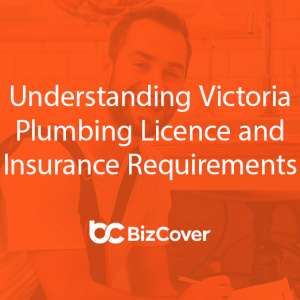Budgeting and business planning are fundamental parts of a business financial plan. From the largest ASX-listed corporations at the big end of town, down to the smallest sole traders and microbusiness owners toiling away out of their suburban home offices across Australia, all business can benefit from having a budget.
Just as small business insurance is important, so too is small business budgeting. In fact, a budget is critical for understanding how the financial health of your business is holding up. Is it as healthy as a horse? Strong as an ox? Or is on its last legs, approaching its final hour, and waiting to be put out to pasture? Well, you may never know exactly where your business sits financially without the guidance of an up-to-date and meticulously maintained budget that doesn’t skimp on the nitty gritty details.
A budget is a financial tool that acts as a financial scorecard for your business.
It helps you to make informed decisions about where you should spend a little more, and where you should perhaps cut back on spending, or redirect spending to where it will provide better returns for your business. Could a small business budget guide such as this one help you and your business?
Why bother with a budget for a small business?
While it may sound counter-intuitive, the argument can be made that small business owners – time-poor, short on resources, often underhanded, and at times struggling to keep all the balls in the air – would benefit the most from a regimented business budget as part of their business financial plan.
Small business budget guides help small business owners bring some method to the madness of running their own business, enabling them to organise their business in a more logical way. In doing so, budgeting can bring clarity and help uncover critical insights into more effective and more efficient strategies to grow your business.
Budgeting gets a bad rap. It sounds and feels like a boring chore – penance handed out when you’ve misbehaved. From the outside budgeting may also sound scary, complicated, and a bit of a headache. But if you learn to love budgeting and embrace it, it could make all the difference in your small business.
How to budget for business success
When your business decisions are guided by a well-developed budget, you’ll gain keen insights into how to reduce or eliminate wasteful spending. And once you’re doing that, your small business will soon be more profitable than it ever could’ve been without a budget.
Here are the key details you need to know to create a budget for your small business. After reading these small business budgeting pointers, you’ll be equipped to create your very own budget to guide your small business to future successes.
1. Choose your budgeting platform
Before you start crunching the numbers with a budget as part of your business financial plan, you first need to decide which system you will use to create and track your budget. It can be a simple spreadsheet that you build out yourself in Excel, or a similar spreadsheet program. Or you may choose to pay for one of the many bespoke small business budgeting software products on the market.
Whichever business budgeting tool or system you choose to manage your small business budget, get comfortable with using it, as you’ll soon be referring to it a lot as you plan a budget for business success.
2. Forecast your revenue
With your budgeting and business planning in place and your system set up, start entering your figures. Look over your records from recent years and gauge the income your business has been generating in each month. If yours is a new business, have a look at industry averages to predict your potential monthly income.
Then, total all your recurring and expected income sources to roughly predict what your revenue will be for each month of the year.
3. Add up you fixed costs of doing business
Now assess your expenses. First, total your fixed costs of doing business; this will include standard operational costs that never change (ie rent, business insurance, loan repayments, and so on). Be specific here; don’t leave any of these expenses out of your budget. Once done, take your fixed costs total and subtract that figure from your revenue forecast.
4. Variable expenses
Next, you’ll want to look at the variable expenses your business carries. These are costs you have to service every month but aren’t the same amount every month. Your variable expenses may include supply costs, phone bills, and utilities.
While variable expenses are part and parcel of running a business, this is one area in your small business budget where you could sharpen your pencil a smidge if you’re looking to cut back on some expenses during slower periods throughout the year.
5. Regularly analysis your budget for accuracy
If you’re going to put in the hard yards to create and follow a budget for business to guide your small business decision-making, then you’ll want to make it as accurate and meaningful as possible. To make sure you are absorbing all the nitty gritty details your budget is feeding you, you’ll need to analyse it regularly – at least on a monthly basis.
An analysis will help you to tighten up your budget where needed by giving you clear insights into the reality of costs going out and revenue coming in for your business. Through regularly listening to what the figures in your small business budget are telling you, you’ll gain a truly clear financial picture of your business. You can then use those insights to tweak your budget as needed.
One final takeaway
Now that you’ve got this small business budget guide and your budget in place as a key tool in your business financial plan arsenal, here’s one important thing to remember. Your small business budget will only ever be as good as the data you put into it. So, it’s essential that you only use ‘good numbers’. Good numbers are honest and accurate numbers.
As part of your budgeting and business planning, be sure to avoid having unnecessary assumptions in your budget, because we all know what they say about assumptions. Take the time to dig into your accounts and pull out the real figures. It can be a little fiddly, but it’ll be worth it. Otherwise you risk poisoning your budget with inaccuracies, which could lead to nasty surprises come end of financial year. And if in need of help with your small business budget, don’t be afraid to seek the advice of a finance professional such as an accountant or a business advisor.
Creating a budget for your small business is a great way to keep on top of things and make informed business decisions. One important business decision that BizCover can lend a hand on is your small business insurance*. Hop over to the BizCover website or give us a call 1300 920 864 to find out how to quickly and easily purchase business insurance for your small business. Because that’s what we’re all about.
© 2022 BizCover Pty Limited, all rights reserved. ABN 68 127 707 975; AFSL 501769


